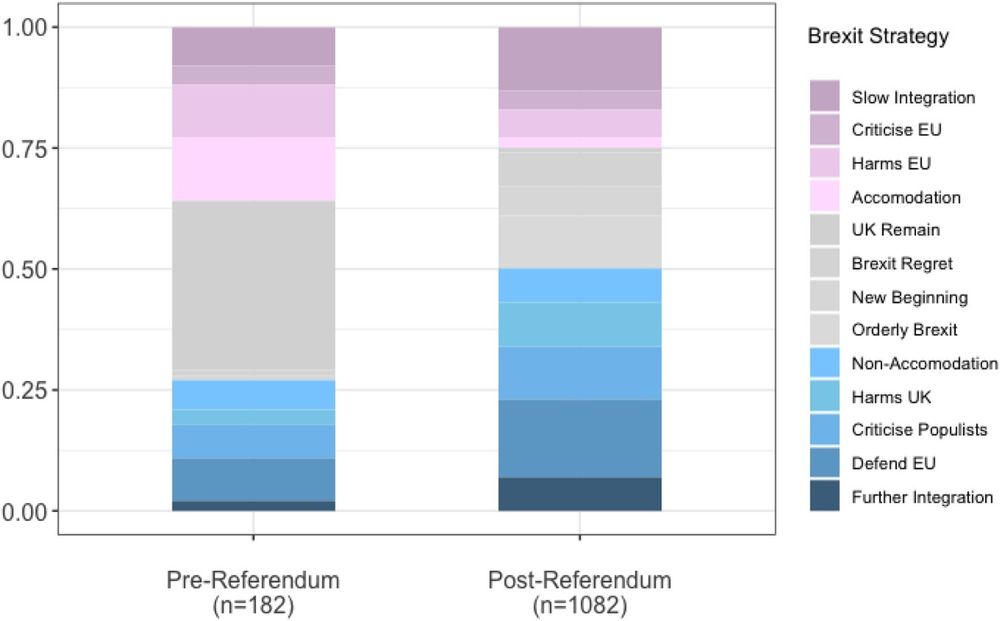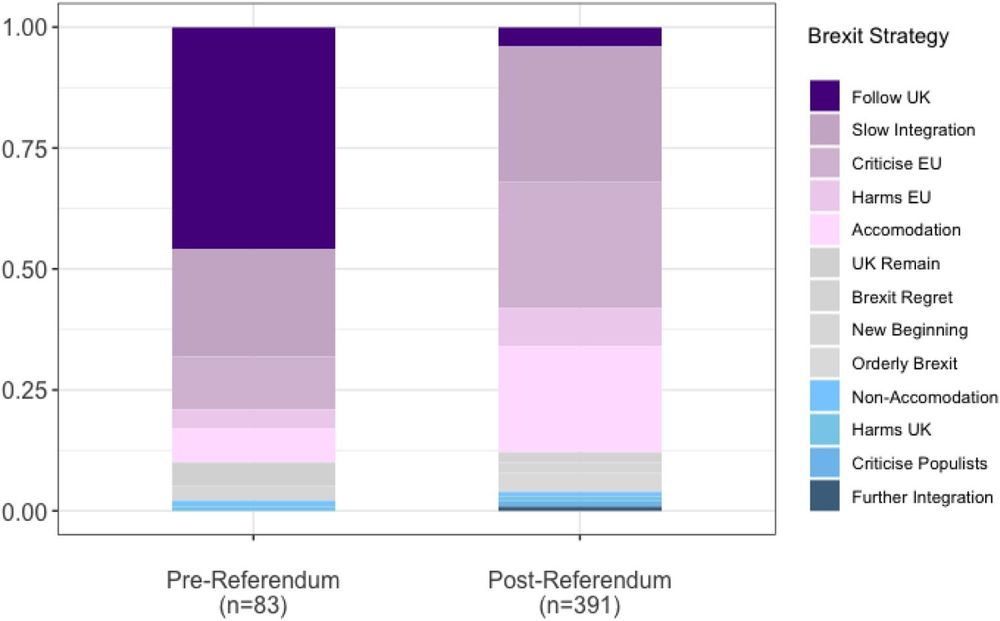Tom Hunter
@tommccraehunter.bsky.social
Political Science, EU integration, and International Relations.
Postdoc on the DISINTEGRATION project at the IPZ. PhD from LSE.
Postdoc on the DISINTEGRATION project at the IPZ. PhD from LSE.
And here are predicted probabilities at different levels of issue salience: as salience increases, this increases the probability of leaders claiming credit, and decreases the prob of sharing credit with the EU.

October 8, 2025 at 11:02 AM
And here are predicted probabilities at different levels of issue salience: as salience increases, this increases the probability of leaders claiming credit, and decreases the prob of sharing credit with the EU.
However, there are huge differences across issues: for the Environment (low salience during my investigation period) most leaders are happy to credit the EU, but for the Economic Situation (high salience), most leaders claim credit

October 8, 2025 at 11:02 AM
However, there are huge differences across issues: for the Environment (low salience during my investigation period) most leaders are happy to credit the EU, but for the Economic Situation (high salience), most leaders claim credit
Importantly, Europe DOES receive credit from national leaders. Many leaders are to the right of the dotted line in this figure, meaning they actually share credit with the EU more than they claim it for themselves.

October 8, 2025 at 11:02 AM
Importantly, Europe DOES receive credit from national leaders. Many leaders are to the right of the dotted line in this figure, meaning they actually share credit with the EU more than they claim it for themselves.
What do we observe descriptively? i) Blame shifting by governments is rare; ii) the response to increased Euroscepticism + EU politicization in crisis years seems to be an increase in credit claiming rather than blame.

October 8, 2025 at 11:02 AM
What do we observe descriptively? i) Blame shifting by governments is rare; ii) the response to increased Euroscepticism + EU politicization in crisis years seems to be an increase in credit claiming rather than blame.
(4/5) Mainstream pro-European parties also got a bolder in their #Brexit statements after the vote - increasing the pro-Europeanism in their rhetoric and using it as an opportunity to attack #populists at home and abroad.

July 7, 2025 at 5:57 PM
(4/5) Mainstream pro-European parties also got a bolder in their #Brexit statements after the vote - increasing the pro-Europeanism in their rhetoric and using it as an opportunity to attack #populists at home and abroad.
(3/5)The descriptive figures show it all: whilst talk of following in the UK’s footsteps was popular pre-referendum vote (June 2016), this almost disappears completely post-vote. I also find that EUsceptics aim to avoid #Brexit in their parliamentary comms.

July 7, 2025 at 5:57 PM
(3/5)The descriptive figures show it all: whilst talk of following in the UK’s footsteps was popular pre-referendum vote (June 2016), this almost disappears completely post-vote. I also find that EUsceptics aim to avoid #Brexit in their parliamentary comms.

